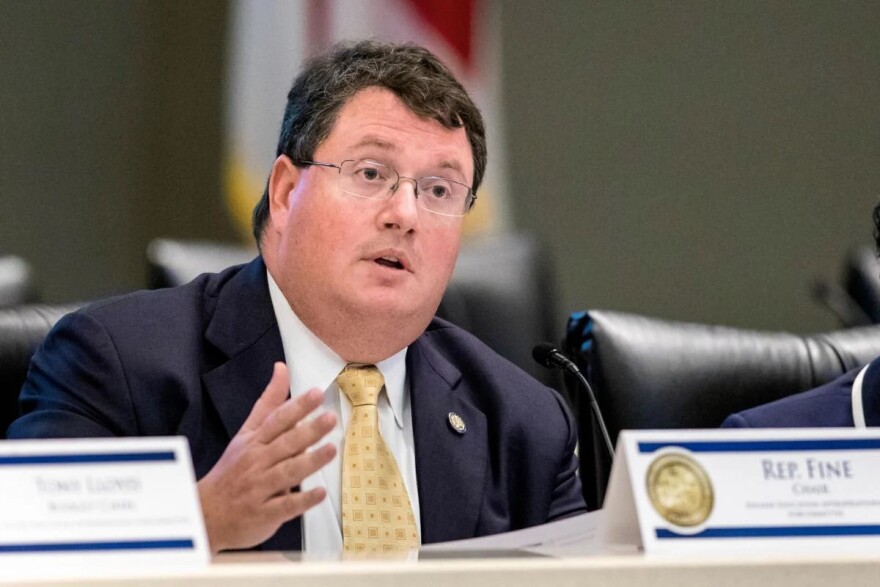The state House and Florida Chapter of the American Academy of Pediatrics have settled a federal lawsuit over subpoenas that sought information about how the medical group developed standards of care for children diagnosed with gender dysphoria.
Attorneys for both sides filed a court document Monday dismissing the case, which the pediatricians group filed last year after House Health & Human Services Chair Randy Fine, R-Brevard County, subpoenaed documents.
The settlement came about two weeks after U.S. District Judge Allen Winsor rejected summary judgment motions from both sides and said he would hold a trial in the case.
The pediatricians’ group argued in the lawsuit that forced disclosure of information would violate First Amendment rights. Winsor’s order on the summary-judgment motions said the group had turned over documents to the House but redacted the names of 15 people connected with specific statements.
His July 22 order said the “sole remaining issue is whether the First Amendment precludes the House (Health & Human Services) Committee from insisting on production of unredacted documents” showing the 15 names.
The settlement indicated that the group agreed to remove redactions from six documents, though it could continue to redact the name of its communications coordinator, email addresses and telephone numbers. The settlement did not provide additional details about the previous redactions.
“Upon receipt (by the House) of the unredacted documents … FCAAP (the Florida Chapter of the American Academy of Pediatrics) and its members will be deemed to have complied with the subpoenas and will be discharged from any further obligations thereunder,” the settlement, which was signed by House General Counsel David Axelman, the pediatricians group’s attorney, Barry Richard, and the group’s executive director, Alicia Adams.
The House issued a subpoena near the end of the 2023 legislative session, which included the Republican-controlled Legislature passing a measure aimed at preventing transgender minors from receiving puberty blockers and hormone therapy to treat gender dysphoria. It issued a second subpoena in November, the settlement said.
Many major medical organizations support such treatments for gender dysphoria, which the federal government defines clinically “as “significant distress that a person may feel when sex or gender assigned at birth is not the same as their identity.” But Gov. Ron DeSantis and other Republicans — including Fine — have assailed such treatments and disputed that they are medically appropriate.
In a summary-judgment motion filed in January, House attorneys said Fine’s committee should receive the subpoenaed information as part of its oversight role.
“In sum, the House committee has an overriding interest in investigating whether the integrity of the process by which practitioner-developed standards of care are created and promoted has been compromised,” the motion said. “If medical organizations in Florida are endorsing and promoting novel and seemingly harmful medical interventions as a ‘consensus’ standard of care, the House committee has authority to investigate how that purported consensus was formed and whether such organizations actually speak for their physician membership rather than just their president when they purport to endorse such practices.”
But in a response filed in February, Richard wrote that the pediatricians group “doesn’t seek to protect its members’ anonymity in connection with their relationship to the association and doesn’t claim that membership in the organization alone creates a reasonable fear of injury. Rather, FCAAP seeks to maintain anonymity of particular groups of members in connection with their interchange of ideas on a controversial subject, and it is this anonymity the committee subpoena seeks to destroy.”

